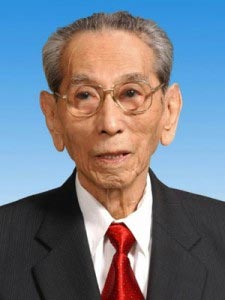
Ngapo Ngawang Jigme
Born in 1910, Ngapo began serving the Tibetan Government in 1936. His role in Tibetan politics became prominent after he was appointed the Dhochi (roughly translated as Governor General of Eastern Tibet) based in Chamdo in 1950 from where he led a military campaign against the invading Chinese forces.
That led to his direct and close interaction with the officials of the Chinese government. Subsequently, he was promoted to the position of a Kalon or Shape (Minister) in the Tibetan Government.
Kasur Ngapo is most well known for being the leader of the Tibetan delegation that was sent to China in 1951 to negotiate with the Chinese government. This meeting resulted in the controversial 17-Point Agreement that set the parameters for relationship between the Tibetan and Chinese governments and also defined the status of Tibet.
After the March 10, 1959 Tibetan National Uprising and the flight of His Holiness the Dalai Lama to India, Kasur Ngapo opted to stay back and to work with the Chinese government. He subsequently served in various capacities in the Tibet Autonomous Region as well as at the national level in Beijing. He had been living in Beijing since 1991.
Along with the 10th Panchen Lama, Kasur Ngapo was involved in the establishment of the Tibet Development Fund to implement developmental projects in Tibetan areas.
In the 1980s the Tibetan fact-finding delegations as well as the high level exploratory delegations sent by the Dalai Lama met with Kasur Ngapo in Beijing and received frank suggestions on the future of Tibetan-Chinese relationship. The envoys of His Holiness the Dalai Lama that visited Beijing in 2002 also met with Kasur Ngapo.
Many Tibetans have found fault with Kasur Ngapo for not speaking more forthrightly and openly on behalf of the Tibetan people, as the previous Panchen Lama did. Nevertheless, in an internal speech made in 1988 Kasur Ngapo said:
“It is because of the special situation in Tibet that in 1951 the Seventeen Point Agreement on the Peaceful Liberation of Tibet, between the central people’s government and the local Tibetan government, came about. Such an agreement has never existed between the central government and any other minority regions. We have to consider the special situation in Tibetan history while drafting policies for Tibet in order to realize its long-term stability. We must give Tibet more autonomous power than other minority regions. In my view, at present, Tibetan Autonomous Region has relatively less power of autonomy compared with other autonomous regions, let alone compared with provinces. Therefore Tibet must have some special treatment and have more autonomy like those special economic zones. We must employ special policies to resolve the special characteristics which have pertained throughout history.”
Furthermore, in 1991, Kasur Ngapo asked the Chinese government to abide by the 17-Point Agreement, specifically the commitment “not to change the existing political system in Tibet.”
In recent times, there were reports that Kasur Ngapo was writing his autobiography but that it was being scrutinized by the Chinese government.
Kasur Ngapo is survived by his wife and around 10 children. One of Kasur Ngapo’s sons, Jigme Ngapo, left China in the mid 1980s. He worked with the International Campaign for Tibet in Wasghington, DC before moving to Radio Free Asia to head its Tibetan-language section.

